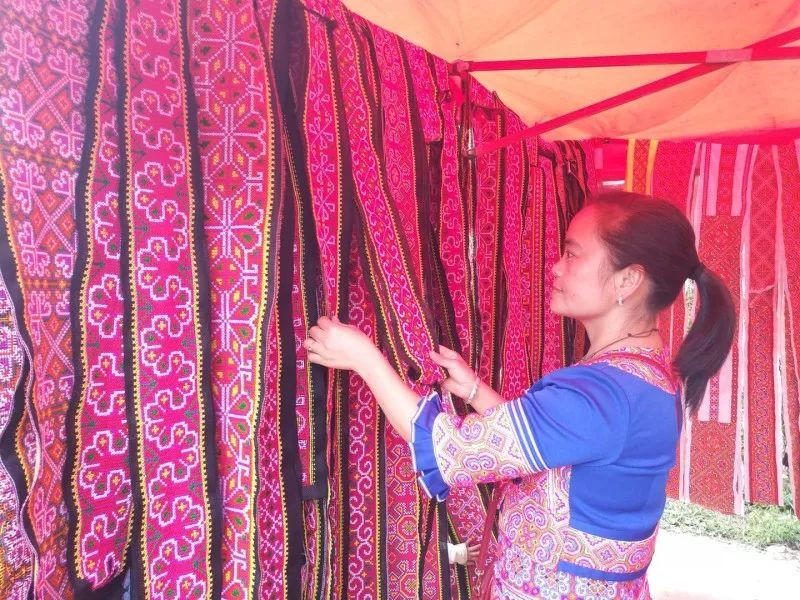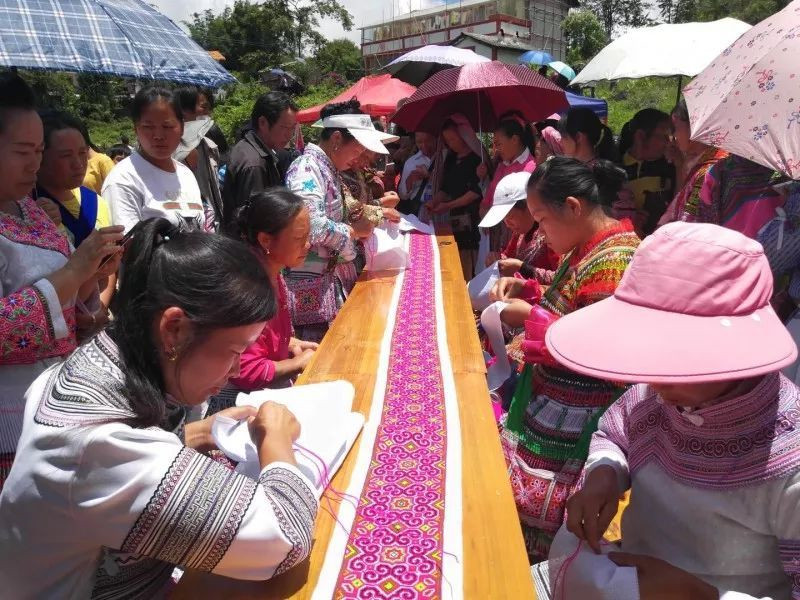
Naodouyang Festival of Miao Ethnic Minority in Maguan County, Wenshan
Overview of the Festival
- Chinese Name: 文山马关县小坝子闹兜阳
- English Name: Naodouyang Festival of Miao Ethnic Minority in Maguan County, Wenshan
- Location: Naodouyang Festival of Miao Ethnic Minority is held in Laodongzhai Village of Xiaobazi Town in Maguan County, Wenshan
The Naodouyang Festival is a vibrant and culturally rich event that showcases the unique traditions and heritage of the Miao people. This festival highlights the community’s agricultural practices, folklore, and social interactions, making it an important occasion for both cultural expression and community bonding.

The Naodouyang Festival typically takes place in the spring, marking a time of renewal and celebration of the harvest season. It serves as an opportunity for the Miao people to express gratitude for the earth’s bounty and to pray for good fortune in the upcoming agricultural year. The festival is characterized by rich cultural performances, traditional games, and various rituals that underscore the community’s connection to nature and their ancestors.
The Food Culture Festival is a celebration of the region’s rich culinary heritage and a testament to the importance of food in cultural identity. Through a variety of activities, including cooking competitions, cultural performances, and workshops, the festival showcases the flavors, techniques, and traditions of the diverse ethnic groups in the area. It not only promotes local cuisine but also fosters cultural exchange, community involvement, and appreciation for the culinary arts, making it a highlight in the region’s annual calendar of events.

Key Features and Activities of the Food Culture Festival
1. Culinary Exhibits
One of the highlights of the festival is the extensive showcase of local dishes. Many stalls and booths are set up to present traditional foods from various ethnic groups in the region, including the Zhuang, Yao, Hani, and Han communities. Visitors can sample a variety of delicious dishes made from locally sourced ingredients, such as rice, mushrooms, herbs, and various meats.
2. Cooking Competitions
Cooking contests often take place during the festival, where chefs and home cooks compete in preparing traditional dishes. These competitions celebrate both skill and creativity, encouraging participants to innovate while staying true to their culinary heritage. Judges typically evaluate dishes based on taste, presentation, and adherence to traditional methods.
3. Cultural Performances
In addition to food, the festival features cultural performances that highlight the rich traditions of the local ethnic groups. This includes traditional music and dance performances, showcasing regional instruments and attire. Spectacles like folk dances and theatrical performances add a lively atmosphere to the festival, allowing attendees to appreciate the cultural context behind the food.
4. Workshops and Demonstrations
Workshops and cooking demonstrations led by local chefs or culinary experts offer attendees an opportunity to learn about traditional cooking techniques and recipes. Participants may have the chance to engage hands-on with the cooking process, gaining insights into local culinary practices and ingredients.
5. Food Art and Presentation
The festival often includes competitions or displays related to food art, where chefs create visually stunning presentations using local ingredients. This aspect highlights the artistry of food preparation and presentation, promoting a deeper appreciation for culinary aesthetics.
6. Promoting Local Ingredients
Local farmers and producers take part in the festival by showcasing their ingredients, such as fresh vegetables, grains, herbs, and artisanal food products. This aspect of the festival emphasizes the importance of sustainable practices and supports local agriculture while promoting healthy eating.
7. Cultural Exchange and Community Engagement
The Food Culture Festival serves as a vital space for cultural exchange, where people from different backgrounds come together to share food and stories. This promotes understanding and appreciation of the diverse cultural heritage of Maguan County and fosters community engagement, strengthening social bonds among residents and visitors.

 7 Days GolfingTour
7 Days GolfingTour
 8 Days Group Tour
8 Days Group Tour
 8 Days Yunnan Tour
8 Days Yunnan Tour
 7 Days Shangri La Hiking
7 Days Shangri La Hiking
 11 Days Yunnan Tour
11 Days Yunnan Tour
 6 Days Yuanyang Terraces
6 Days Yuanyang Terraces
 11 Days Yunnan Tour
11 Days Yunnan Tour
 8 Days South Yunnan
8 Days South Yunnan
 7 Days Tea Tour
7 Days Tea Tour
 8 Days Muslim Tour
8 Days Muslim Tour
 12 Days Self-Driving
12 Days Self-Driving
 4 Days Haba Climbing
4 Days Haba Climbing
 Tiger Leaping Gorge
Tiger Leaping Gorge
 Stone Forest
Stone Forest
 Yunnan-Tibet
Yunnan-Tibet
 Hani Rice Terraces
Hani Rice Terraces
 Kunming
Kunming
 Lijiang
Lijiang
 Shangri-la
Shangri-la
 Dali
Dali
 XishuangBanna
XishuangBanna
 Honghe
Honghe
 Kunming
Kunming
 Lijiang
Lijiang
 Shangri-la
Shangri-la
 Yuanyang Rice Terraces
Yuanyang Rice Terraces
 Nujiang
Nujiang
 XishuangBanna
XishuangBanna
 Spring City Golf
Spring City Golf
 Snow Mountain Golf
Snow Mountain Golf
 Stone Mountain Golf
Stone Mountain Golf
















